Last Updated: 24/09/2025
Your Ultimate Guide to Dog Care: A Vet's Advice for a Happy, Healthy Pet
From training and entertainment to grooming and travel, our vet's comprehensive guide covers everything you need for a happy dog. Discover top tips and product recommendations to help you provide the best care for your beloved companion and strengthen your bond.
Author: Dr Gillian Hill BVSc (Hons)
Reading Time: 8 minutes - short read
Dogs are no longer just 'man's best friend'; they are cherished members of the family. The rise in dog-friendly cafes, restaurants, and accommodation shows just how much we want our pooches to be part of every experience.
In return for the unconditional love, loyalty, and joy they bring to our lives, we can repay them by ensuring they are well cared for. This includes providing regular exercise, mental stimulation, and grooming, as well as teaching them to be well-behaved and socialised companions.
Take a look at our guide on how to keep your dog fit, happy, and healthy - they deserve nothing less!
Toys and treats for mental stimulation
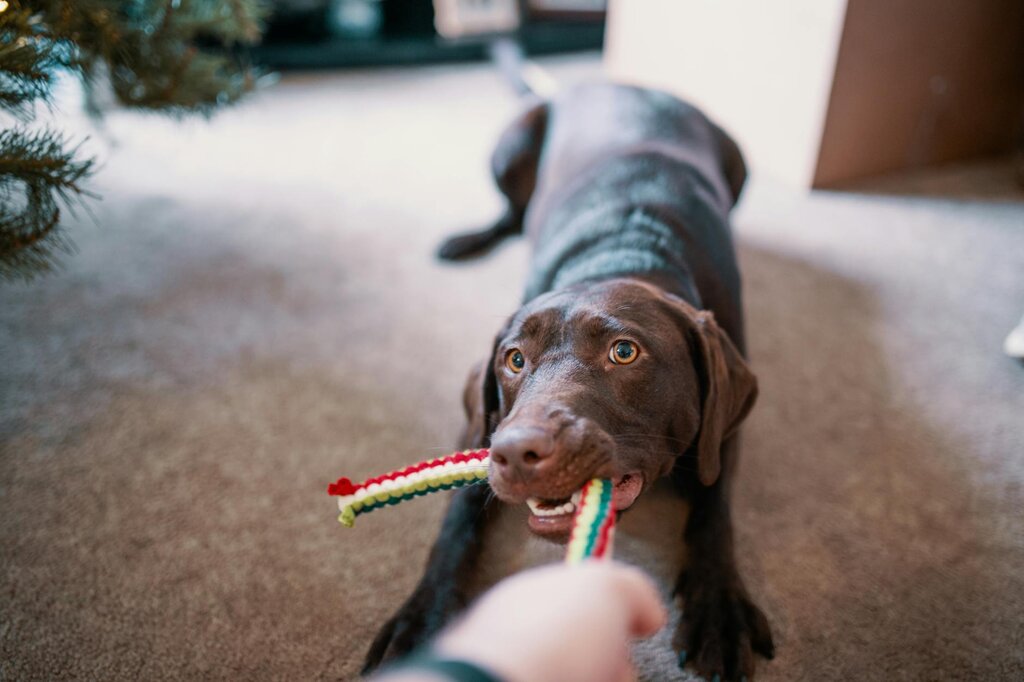
Dogs are intelligent, social creatures, who thrive with lots of mental stimulation. Keeping them in the backyard all day with little or no social interaction can quickly lead to boredom and behavioural problems like digging, barking and separation anxiety. Highly intelligent breeds like Border Collies and Kelpies need a huge amount of physical exercise and enrichment. With busy lives, it can be difficult to be present as much as our dogs would like, but thankfully there are a number of strategies you can implement to help.
Long-lasting treats
Long lasting treats and natural treats are great for keeping your doggo amused, stimulated and out of mischief when they're alone. As an added benefit, they also tend to be great for keeping your dog's teeth clean!
Interactive feeders
Interactive toys like snuffle mats, lick mats and puzzle feeders provide excellent mental exercise as your dog works out how to find their food! They are also an excellent way of preventing dogs from gulping their meals, and can help to alleviate hunger pangs between meals by extending meal time. Food puzzle toys like the Classic Kong can be stuffed with treats like liver balls, peanut butter or Kong paste for an extra tasty, long lasting treat. They can also be filled and frozen for an even greater challenge.
Having a number of toys on rotation can also help to keep your dog interested in them. We recommend rotating toys every 2-3 days to alleviate boredom.
Read more:
Interested in finding which dog toy suits your dog best? Take a look at some options for different styles of play by out vets.
Find the top dog treats in Australia! Our expert review selects the healthiest and tastiest options for your pup's delight.
Banish boredom with our proven tips and engaging toys, ensuring your dog stays mentally stimulated, happy, and well-behaved.
A heavy chewer at home? Take a look at tough toy options for power chewers that go the distance.
Have you ever wondered if dogs can get depressed? Read more from our vets on how you can help your dog feel better.
Don't let the setting sun stop your strolls! Check out our friendly guide to safe and fun nighttime dog walks. We've got easy tips and awesome reflective and light-up gear to keep you and your furry pal visible and happy after dark!
Positive training tips for a well-mannered dog
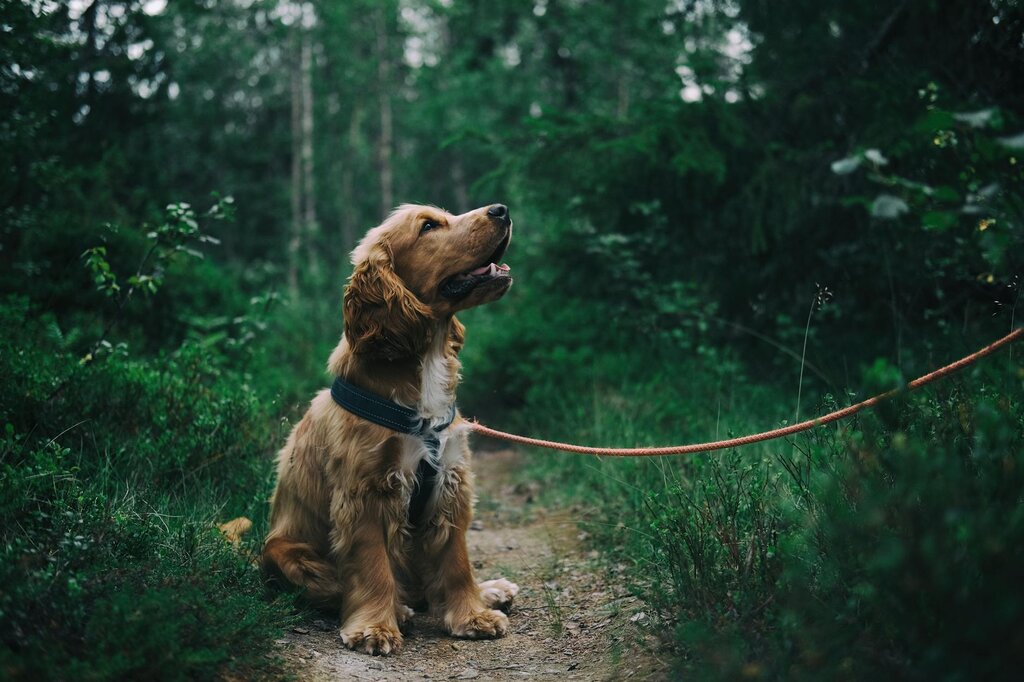
Dogs learn just like humans, by trial and error. Their learning goes on whether we are actively teaching them or not. Dogs learn in 2 main ways - through classical conditioning, or operant conditioning.
Classical Conditioning
Classical conditioning is the process where dogs learn by association. They learn by associating experiences (whether positive or negative for them) with certain events. An example of this is when an owner picks up their keys and bag and puts on their shoes in the morning - their dog learns to associate these actions with the owner leaving for the day, and these actions can often be the trigger for separation anxiety.
Classical conditioning is also the process by which socialisation works. By giving young puppies the opportunity to experience new people, animals, environments and sounds in a way that is very positive for them helps them to become confident and outgoing pets.
Operant Conditioning
Operant conditioning is the process where the dog learns that their behaviour has consequences (whether good or bad). Positive consequences for the dog, like being given treats or a favourite toy, or being taken for a walk, will always make that behaviour more likely next time. Dogs will try to avoid behaviours that have brought negative consequences in the past.
The great thing about operant conditioning is that if used correctly through positive reinforcement, it can create a wonderful bond between you and your dog, and is so beneficial for their mental health and enrichment. It can also help to make them wonderful canine citizens! Common examples of operant conditioning include training your dog to sit, stay, drop and come. Specific training techniques like clicker training can help to make learning more effective, as the sound of the clicker is one that your dog will hear at no other time. They learn that the sound of the click leads to a reward (a treat or toy) for their desired behaviour.
For undesirable behaviours such as pulling or lunging on the lead while walking, there are a variety of products available to help. Gentle leader headcollars can give you more control to prevent lunging and pulling on the lead, whilst front attaching harnesses are designed for very heavy pullers. For help in choosing the right product, take a look at What is the Best Harness for my Dog? and 5 Essential Dog Walking Tips.
Read more:
Wondering how to teach your dog or puppy to shake? Check out our tips and tricks to make the process easier for everyone from our vet team.
Check out our tips to stop your puppy from barking eating poo and digging from our vet team.
Wondering how to crate train your puppy? Take a look at our step by step guide.
Wondering how to teach your puppy to walk on the lead? See our training guide for tips and tricks to master the art of the walk.
Wondering more about toilet training a new puppy? Check out our tips and tricks to make the process easier for everyone from our vet team.
Pet tech: Keeping an eye on your dog when you're away
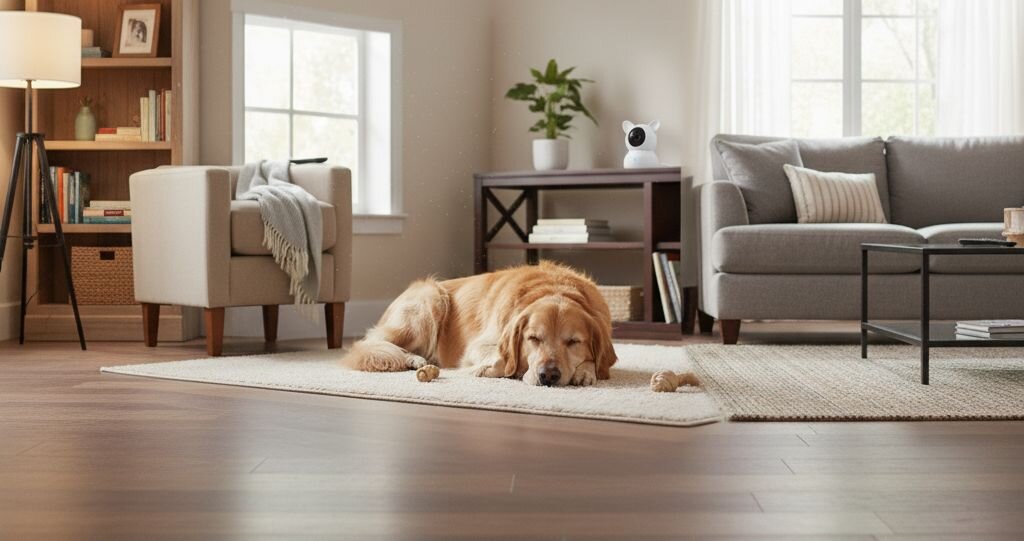
These days it's possible to do almost anything virtually, from turning on your dishwasher to making a cup of coffee, without even being in the room. Luckily, the benefits of our 'smart' world extend to our pets as well.
Monitoring systems now exist to allow you to keep an eye on your dog while you're away from home, and even give them food or a treat! Pet cameras (some of which second as treat dispensers) and automatic feeders can help you interact with your dog throughout the day, and ensure that they are safe and comfortable. Cameras can also allow you to keep an eye on their behaviours (such as barking or digging) while they are alone, and help you to monitor the timing and potential triggers for these events.
Activity and GPS trackers can help you monitor your dog's activity levels and location, while smart bowls will weigh your dog's food and suggest an appropriate food amount based on their weight and food brand.
How much exercise does your dog really need?
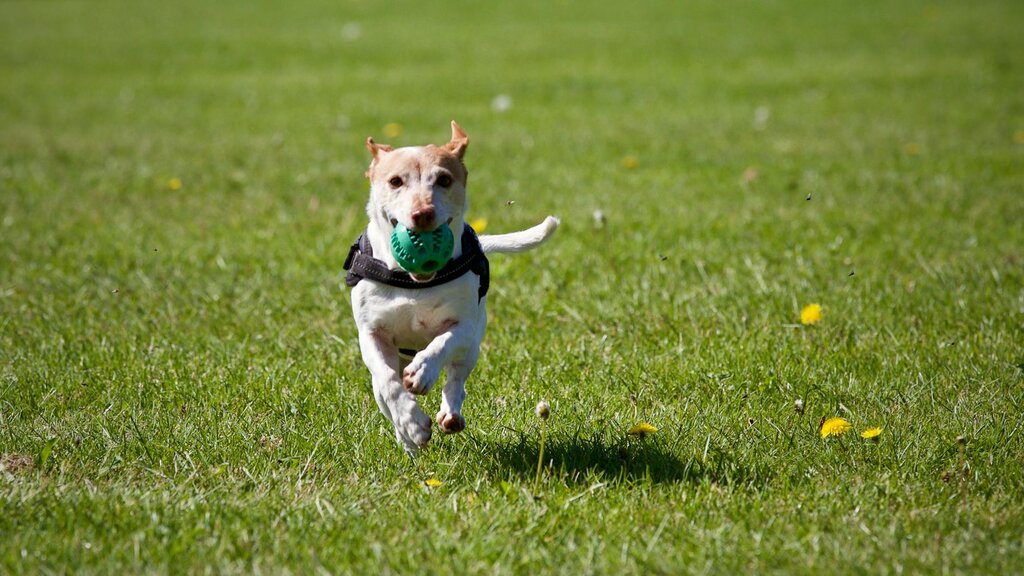
It goes without saying that exercising dogs is a must. With their more sedentary lifestyles compared to their ancestors, regular exercise is essential for a dog's physical and mental health, just as it is for humans.
The amount and intensity of exercise will vary with a dog's age, breed, and any underlying conditions such as arthritis. For example, it is not recommended to exercise large breed puppies vigorously as this can place excess strain on their joints and lead to orthopaedic problems. If you are unsure how much or vigorously to exercise your dog, we recommend speaking to your Vet or our Pet Circle Vet Squad for some pointers.
Read more:
We all know that exercise is crucial for dogs but how much do they need? Find out in our Vet-written article.
Wanting to know how to make walking your dog enjoyable? Learn more about pulling on the lead and safety tips from our vet team.
Wondering which harness is best? Explore styles to make walks fun for you and your dog!
Running with your dog can be a rewarding way to bond and stay fit together. This article provides a comprehensive guide on how to start running with your dog.
Spring has sprung! Check out our Vets list of our favourite dog-friendly warm weather activities.
Is your dog keen to get in the water this Summer? Check out the important things you should know if your dog loves swimming.
Grooming essentials and how to clean up pet messes
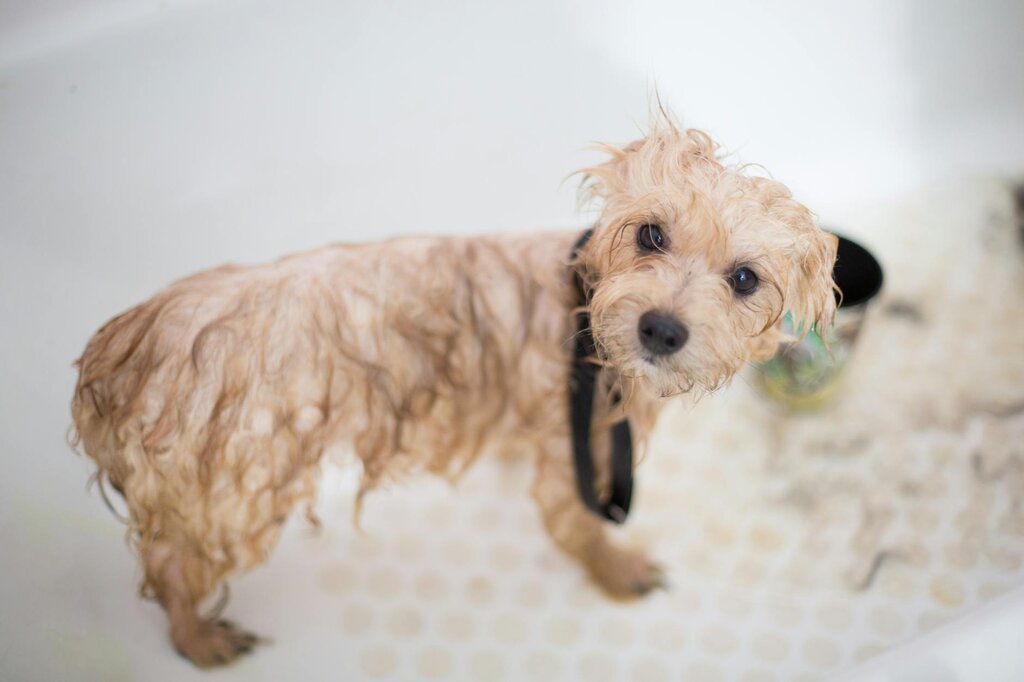
Grooming
Regular grooming is a fundamental part of keeping your dog happy and healthy, and it goes far beyond just a pretty coat. Brushing your dog a few times a week is essential for removing loose fur, distributing natural oils, and preventing painful mats and tangles, especially for longer-haired breeds.
While bathing is only needed occasionally to avoid stripping the skin of its natural oils, always use a shampoo formulated specifically for dogs.
Don't forget the other important bits: regularly trimming their nails prevents discomfort and posture problems, checking and gently cleaning their ears helps ward off infections, and a consistent dental care routine is crucial for their overall health.
For some dogs, a trip to a professional groomer is a great way to keep their coat in top condition.
From the most appropriate shampoo and the best brush for your dog, to guides on trimming your dogs nails and how long after flea treatment to bathe your dog, take a read through our articles below:
Check out our comprehensive guide for all the information you need on grooming your dog!
Wondering which shampoo is ideal for your dog or puppy? Take a look at our vet-reviewed top picks.
Nervous about trimming your dog's nails? Our guide makes it easy. Learn the proper techniques for a safe, stress-free trim at home, turning a dreaded task into a calm bonding experience. We'll show you how to avoid the quick, build your confidence, and keep your pup's paws perfectly healthy.
Does your dog shed? Discover the best brush for their coat—slicker, deshedding, or bristle!
Find out our Vet-recommended products for the best dog clippers for your dog.
When can you bathe your dog after flea treatment? Depending on the product, to ensure the treatment remains effective it may be crucial to wait. Our vet-written article covers the recommended waiting period and provides essential safety guidelines for bathing your pet post-treatment.
What to do to solve ear infections for your dog!
Our comprehensive vet guide details how to keep your dog's teeth healthy, including daily brushing, dental chews, and specialised diets.
Clean Up
It is quite normal to expect accidents in the house while puppies are toilet training, but older animals can also urinate or defaecate inappropriately for a number of reasons. Submissive urination, kidney disease, urinary crystals, bladder stones or urinary tract infection can all cause toileting troubles and accidents inside the house. Hormonal disease such as Cushings disease or thyroid disease, tumours in the urinary tract or prostatic disease in male dogs can also cause increased urine production or more frequent urination.
In the first instance, it's important to take your dog for a check up with your vet if they are having accidents in the house (but previously been well toilet trained), or if you have noticed changes to their toileting behaviour.
Next, arming yourself with the right equipment to clean up any messes is important. It is important not to use ammonia-based products for the clean up as ammonia is one of the compounds in your dog's urine, and the lingering odour can tempt your dog to urinate in the same place again. Instead, use an enzymatic cleaner to break down the urine deposit and remove the odour.
It is important not to punish your dog for having an accident in the house. Especially if you are toilet training your puppy, punishment such as yelling, hitting or rubbing their nose in it will only serve to make your dog fearful of you. Clean up the mess, and make a mental note to provide more opportunities for them to toilet appropriately outdoors or on an indoor toilet. Have their treats or favourite toy ready to reward them when they go in the right place.
Tips for safe and stress-free travel with your dog
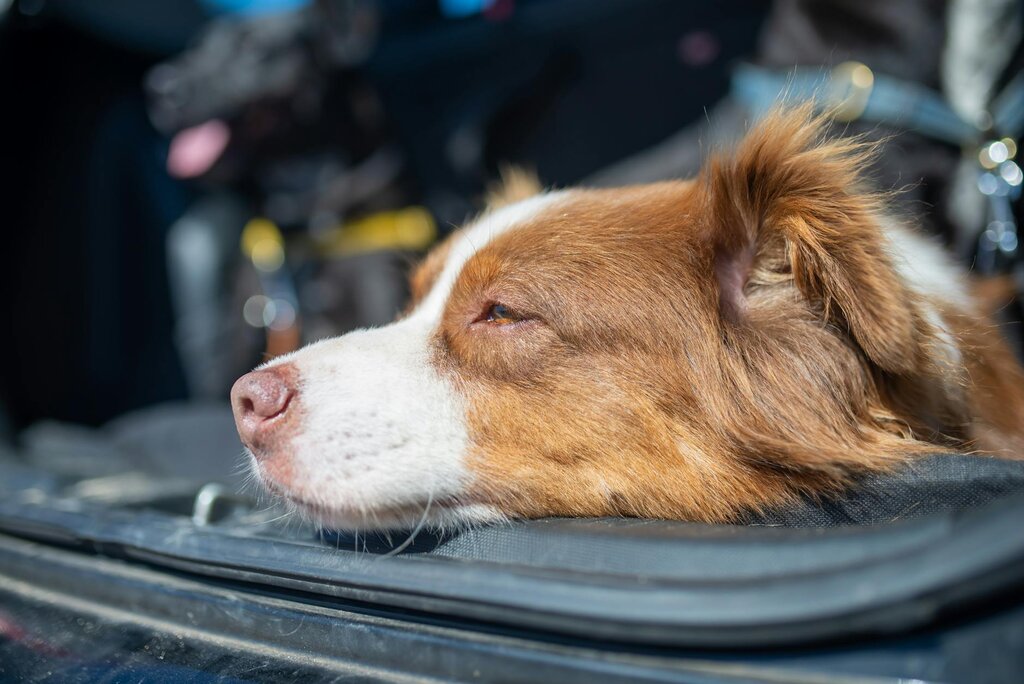
Travelling with our dogs has become very common as we involve them in every aspect of our lives. From dog parks and off-leash beaches, dog-friendly rentals and pet-friendly campsites to special provisions for dogs on boats and planes, the opportunity is there to let your dog experience the fun of travel and the outdoors with you.
Whilst it's wonderful to be able to involve them, there are a number of things to be considered before embarking on a journey. Some dogs don't take well to the process of travel, so anxiety aids can be a worthwhile consideration for them. Ensuring that your dog is safely secured with a car restraint or in a carrier, car seat or crate is crucial.
Read more about travelling with your dog:
Planning a road trip with your dog? Our vet's guide covers 8 essential tips for a safe and stress-free journey. Learn about car safety, calming aids, parasite prevention, and must-have travel accessories to ensure a happy adventure for everyone.
Is your dog anxious in the car or suffers from motion sickness? Find out how to alleviate it.
Looking for the best car seat to keep your dog travelling safe? Check out our guide to the best car seats and accessories as reviewed by our expert Vets.
Planning to fly with your pet? Our vet-written guide covers everything for a smooth journey. Learn about essential health checks, airline rules for domestic and international travel, crate training tips, and a checklist for the big day to ensure your companion travels safely and comfortably.
Stylish and practical accessories for your dog
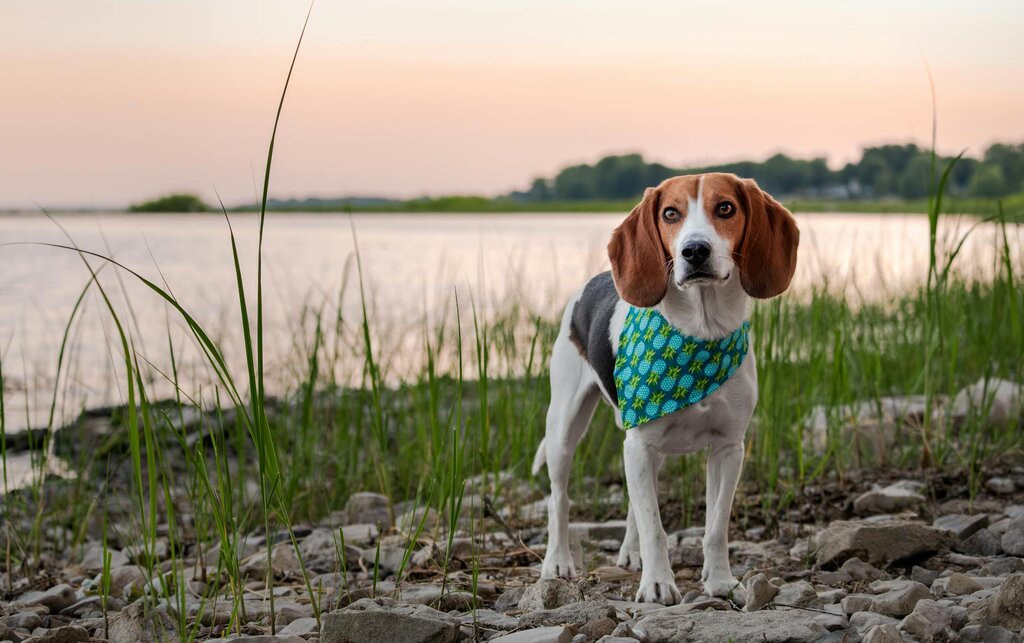
In terms of pet expenditure, in 2021, dogs owners spent over $1 billion dollars on products or accessories for their dogs such as clothing, toys, leads, bowls, collars and carriers1. This came a close fourth in the pet expenditure rankings after dog food, veterinary services and health care products. It's quite clear that we love our dog's to feel good and look stylish!
For our top tips on canine couture, take a look at our articles:
Find out which coat would be best for your pooch and how to find the right size.
Looking for a comfy bed for your furry friend? Have a look at the top rated dog beds from Pet Circle
Ultimately, our dogs offer us boundless love and companionship, and in return, they deserve our very best care. By providing them with engaging entertainment, consistent training, proper exercise, attentive grooming, and a safe environment both at home and when travelling, we can ensure they lead happy, healthy, and fulfilling lives right by our side.
Explore our extensive range of dog products and expert Vet-backed guides to find everything you need to keep your cherished canine companion thriving.
Articles recommended for you
Our vet authored guide to the benefits of feeding your dog fresh food plus tips and advice for introducing it into their regular menu.
See our guide to protecting your pet from parasites from our vet team.
Thinking of getting a fish? Check out our guide for setting up a tank and home care tips!
Looking to understand horse feeds better? This comprehensive guide covers feeding recommendations for horses of all ages and disciplines.
Does your pet suffer from anxiety? Check out our Vet-guide for treatment options to help your pet.
History
Our experts continually monitor the health and wellness space and we update our articles when new information becomes available.
Wed 24 Sep 2025
Edited by Dr Gillian Hill BVSc (Hons)Dr Gillian Hill BVSc (Hons)
Veterinarian
Dr. Gillian loves being able to provide depth and detail to pet parents questions, and give up to date, evidence based advice. She loves the variety of pets and inquiries she receives - she especially loves the 'curly' questions that require some research! Seeing the gorgeous photos that pet parents send through of their babies is a highlight of the day! Gillian enjoys to further her veterinary knowledge, and has completed further training in ultrasonography, behaviour and backyard poultry!

